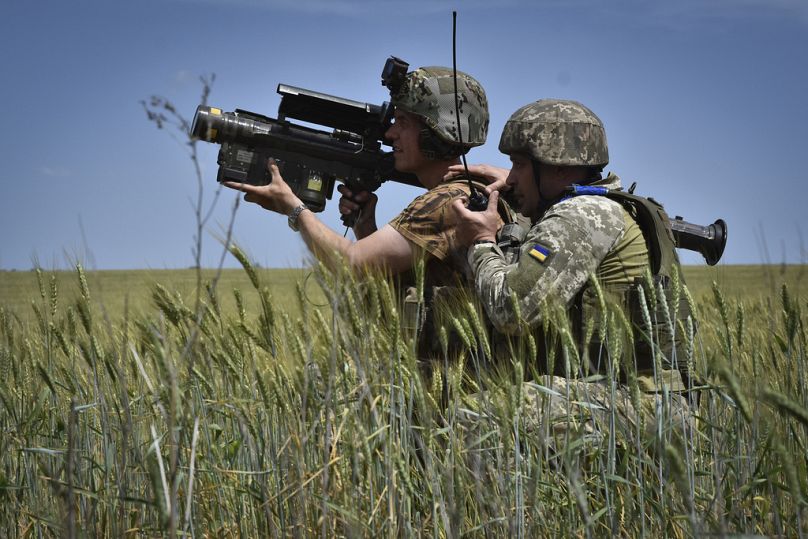Hungary’s Viktor Orbán and NATO Secretary General Jens Stoltenberg struck the deal on Wednesday after a day of “difficult” negotiations.
NATO Secretary General Jens Stoltenberg accepted Hungarian PM Viktor Orbán’s “clear” decision not to participate in the alliance’s defence of Russia’s war in Ukraine, the alliance's chief said on Wednesday.
However, the Central European country pledged not to block other nations from financially supporting Ukraine, according to Stoltenberg.
“I expect our allies will agree a leading role for NATO (in) coordinating and providing security assistance and training for Ukraine. I also expect allies will agree (on a) long-term financial pledge to provide military support. This will provide the predictability and accountability that Ukraine needs,” the NATO top boss told a room full of reporters in Budapest.
“Prime Minister Orbán has made it clear that Hungary will not participate in these NATO efforts, and I accept this position.”
Stoltenberg said in exchange for Hungary’s non-participation, Orbán had guaranteed that the country would not “block other allies” with its veto powers from an agreement being reached to pledge financial support for Ukraine.
"The prime minister has assured me that Hungary will not oppose these efforts, enabling other allies to move forward, and he has confirmed that Hungary will continue to meet its NATO commitments in full,” he added.
The 32-member alliance takes all its decisions by consensus, effectively giving any one of the allies a veto.
'No funds, no personnel' for Ukraine from Hungary
Orbán said 1,300 Hungarian soldiers are involved in NATO operations, and the country has complied with the alliance’s expectations of allocating 2% of GDP to its national military budget.
But, according to the Hungarian leader, the recent European elections over the weekend had reinforced his government's “mandate” to “not participate in a war” outside of a NATO area of operation, he said. This has led to the "difficult" decision not to send personnel.
“We were given the guarantee today that when it comes to the Russian-Ukrainian war when it comes to military out-of-area operation, we do not have to participate in that,” Orbán added.
“Hungary will not provide funds or personnel for the war. Nor will the territory of Hungary be used for any involvement in this war.”
At a summit in Washington next month, US President Joe Biden and his NATO counterparts are expected to agree on a new system for providing Ukraine with more predictable and long-term security and military training assistance.
Support corralled from across globe
Since Russia’s full-fledged invasion in February 2022, Ukraine’s Western backers have routinely met as part of the Ukraine Defence Contact Group, run by the Pentagon, to drum up weapons and ammunition for Kyiv.
Stoltenberg has spearheaded an effort to have NATO coordinate that process. As an organization, the military alliance does not send weapons to Ukraine and has no plans to do so but many of its members give help on a bilateral basis.
NATO allies provide more than 90% of the military support that Ukraine receives.
Plans are afoot for NATO’s leaders to commit on July 9-11 to maintain the level of military support they have provided Ukraine since the invasion began. The world's biggest security organization estimates the amounts to around $40 billion worth of equipment each year.
At their summit in Lithuania last year, Biden and his counterparts promised that they would “be in a position to extend an invitation to Ukraine to join the alliance when allies agree and conditions are met.” The consensus among members now is that it should not happen while war rages on.












